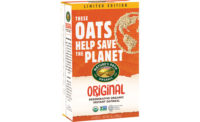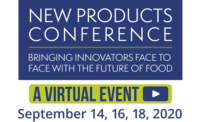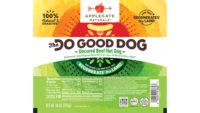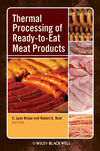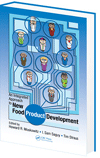Kraft: Farm to Fork

"Experts say climate change, land and water use may be among the biggest challenges in feeding a world of 9 billion people in 2050,” explains Roger Zellner, sustainability director for Research, Development & Quality at Kraft Foods. "Having the 'big picture' of our total footprint -- from farm to fork -- validates the focus of our sustainability efforts, particularly advancing sustainable agriculture."
Serving 170 countries with highly visible and popular brands including Cadbury, Jacobs, Kraft, LU, Maxwell House, Milka, Nabisco, Oreo, Oscar Mayer, Philadelphia, Tang and Trident, Kraft has stepped up its sustainability commitment in a footprint that spans and effects the globe. The study indicates that Kraft's agricultural suppliers are the major vulnerability and leverage point in its corporate goal to achieve a more sustainable ecosystem. Kraft’s "Delicious World" section on its website outlines that corporate commitment, listing sustainability goals targeted by 2015 including:
• Increase sustainable sourcing of agricultural commodities by 25%
• Reduce energy use in manufacturing plants by 15%
• Reduce energy-related CO2 emissions in manufacturing plants by 15%
• Reduce water consumption in manufacturing plants by 15%
• Reduce waste at manufacturing plants by 15%
• Eliminate 50,000 metric tons (100 million lbs.) of packaging material
• Reduce 80 million km (50 million miles) from its transportation network
Insights from the company's footprint study give a status report on Kraft's sustainability goals:
• More than 90% of carbon footprint is outside plants and offices and nearly 60% is from farm commodities.
• About 12% is from transportation and distribution of products from stores to consumers' homes.
• About 5% is from consumers, mostly in food preparation.
• More than 80% of the land impact is from agriculture, (with comparatively little from manufacturing facilities and offices).
• About 70% of the water footprint is from growing raw materials with 10% from manufacturing facilities/offices.
• Another 10% is consumer use.
Its multi-year footprinting project was conducted in partnership with Quantis Inc., a company specializing in life cycle assessment (LCA), a comprehensive analysis of ecological and human health impacts of a product or process over its entire lifecycle, and analyzed by the World Wildlife Fund as part of its market transformation initiative.
From the December 23, 2011, Prepared Foods' Daily News.
Looking for a reprint of this article?
From high-res PDFs to custom plaques, order your copy today!



